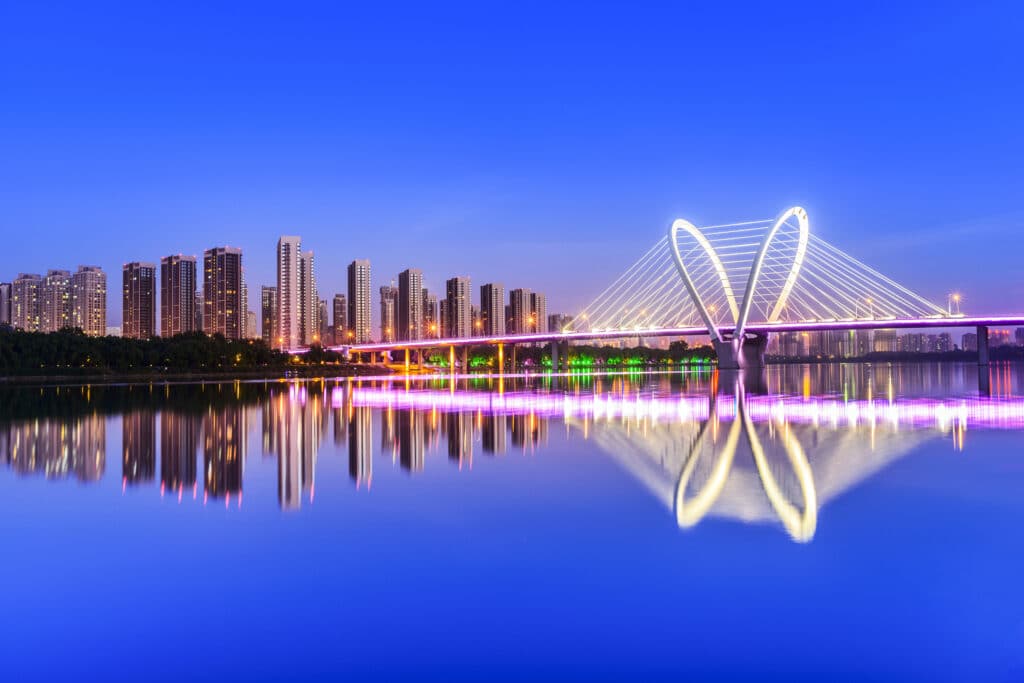Most Expensive Cities in the World to Live In in 2022
If you are looking to invest as an expat or high-net-worth individual, which is what I specialize in, you can email me (advice@adamfayed.com) or use WhatsApp (+44-7393-450-837).
Table of Contents
Introduction
It’s not always rainbows and butterflies, it’s compromise … so a song goes. This list of the most expensive cities in the world could guide you in choosing where not to be next, depending on your budget, whether you’re visiting another city or have packed your bags and are ready to go long term.
Below is a list of 55 most expensive cities in the world to live in out of the 227 cities asset management firm Mercer ranked in its cost of living study in 2022. The company’s ranking of the cities was based on a comparison of the prices of food, housing, transport, and clothing, among other things.
Most Expensive Cities in the World to Live In: #55 Lagos, Nigeria
Lagos serves as a major center for imports into Nigeria and is the core of the country’s music and film industries. However, the city nevertheless has high real estate costs driven by its dense population and scarcity of land. This backdrop makes property acquisition in Lagos a challenging endeavor.
Most Expensive Cities in the World to Live In: #54 Nouméa, New Caledonia
One of the richest nations in the world, New Caledonia, has a beautiful capital city called Nouméa. Diverse cultures are represented in the city, which is located off Australia’s east coast. Nevertheless, it’s infamous for being an exceptionally expensive destination, even for tourists.
Most Expensive Cities in the World to Live In: #53 Kinshasa, The Democratic Republic of the Congo
Due to exorbitant rent prices, flats in Kinshasa, DRC, are typically only accessible to the extremely rich or expats. Rent for a one-bedroom apartment within the city center can cost as much as $2,750 a month, global cost of living data aggregator Numbeo said. Power and electricity outages are common in the city.
Most Expensive Cities in the World to Live In: #52 Luxembourg, Luxembourg
Luxembourg is a fairytale-like city named as one of the best places to live in the world. Luxembourg serves as a center for private banking and finance and is also renowned for its extensive network of tunnels beneath the city.
The cost of living in this pricey metropolis is steadily rising as a result of the growing population, a dearth of new homes, and rising housing costs.
Most Expensive Cities in the World to Live In: #51 Nagoya, Japan
Even without taking into account rent, Nagoya already has a high cost of living compared to other, more crowded Japanese cities like Tokyo. Nagoya is renowned for its automotive sector on top of its stunning skyline. There are manufacturers here for household companies like Toyota and Mitsubishi, which raises the living costs.
Most Expensive Cities in the World to Live In: #50 Yokohama, Japan
Numbeo pegged the average cost of living in Yokohama at 439,878 yen ($3,061) per month for a family of four (exclusive of rent).
It is a major travel hub thanks to beautiful sites including the Sankeien Gardens and Yokohama Landmark Tower Sky Garden, as well as delectable culinary and bar excursions.

Most Expensive Cities in the World to Live In: #49 Dublin, Ireland
Dublin is a fascinating city full of history and pleasure, thanks to the innumerable traditional pubs and popular destinations like the Guinness Storehouse, Jameson Distillery, St. Patrick’s Cathedral, and the Spire of Dublin. Old castles, gorgeous mountain ranges, and fresh vegetation are all around once you leave the city. Dublin is also among the priciest cities in Europe.
Most Expensive Cities in the World to Live In: #48 Milan, Italy
Milan is Italy’s costliest city since it is one of the four fashion capitals of the world and a significant commercial center. Given that it also receives top marks for safety, healthcare, and travel, it should come as no surprise that it is one of the most expensive cities in the world to live in as well as among the costliest on the European continent alone.
Most Expensive Cities in the World to Live In: #47 The Hague, Netherlands
The Hague is a costly but lovely destination for vacation or residence, with a range of Dutch organizations, museums, factories, and more to visit and enjoy. It would cost an average 2,934.5 euros ($2,926) to live in the city without rent for a family of four, according to Numbeo.
Most Expensive Cities in the World to Live In: #46 Berlin, Germany
Berlin is the most affordable capital city to live in for Western Europe despite a cost of living that is higher than the European average. Berlin remains a well-liked city for both German nationals and expats to reside in due to the lively nightlife and great restaurants. The cost of living in the city has only surged in the previous few years amid a declining housing market and a jump in prices of basic necessities.
Most Expensive Cities in the World to Live In: #45 Seattle, Washington
Seattle has one of the highest costs of living in the US because of its high sales tax and the huge proportion of corporations that are headquartered in the city. Seattle is located on the Puget Sound shore and can be easily identified via the iconic Space Needle adorning its skyline.
Most Expensive Cities in the World to Live In: #44 Chengdu, China
Prospering in Chengdu means you can very well keep up with the trends. The city has a high-end mall as it values and highlights luxury items. The city has also been named the happiest in China for the past 12 years, according to a yearly survey by Oriental Outlook, a magazine based in Shanghai that’s an affiliate of state news agency Xinhua.
Most Expensive Cities in the World to Live In: #43 Helsinki, Finland
A family of four needs 3,243 euros ($3,234) a month to live in Helsinki, which is exclusive of rent, according to Numbeo. Meanwhile, a single person can subsist on 881 euros per month.
The strong market demand in the restaurant and food sectors as well as the lack of fierce competition in closed-sector industries are sometimes blamed for the high cost of living.
Most Expensive Cities in the World to Live In: #42 Atlanta, Georgia
Atlanta has earned a reputation as one of the most expensive cities in the world to live in due to the rising expenses of housing and transport. Numbeo said a family of four and a single person should have about $3,707 and $1,047.5, respectively, to live in the city per month (excluding rent).
Most Expensive Cities in the World to Live In: #41 Djibouti, Djibouti
With growing levels of poverty in Djibouti, the cost of living has skyrocketed. The country of Djibouti is the most expensive in Africa due to its high commodity and service prices. Rent for a one-bedroom apartment within the city center costs an average 133,810 Djiboutian franc ($752) per month, as per Numbeo.
Most Expensive Cities in the World to Live In: #40 Shenyang, China
Shenyang, which houses the majority of Liaoning’s population and serves as the province’s capital, is an expensive area to live. Shenyang is a well-known center for business, trade, and industry, therefore residents should budget a sizable amount of money each month for things like rent, food, and other essentials.

Most Expensive Cities in the World to Live In: #39 Brussels, Belgium
Brussels is not just the municipality with the highest density of people in the Brussels-Capital area; it is also a significant historical center, the administrative heart of the European Union, and the location of numerous European government institutions.
A family of four needs an average 3,029.5 euros for monthly living costs in Brussels, Numbeo said.
Most Expensive Cities in the World to Live In: #38 Victoria, Seychelles
Visitors to Victoria, the main city of the Seychelles, are greeted by breathtaking scenery, lovely beaches, and azure waters. The city is situated on Mahé Island in the Indian Ocean. With its high rental prices, utility charges, and service taxes, the Seychelles, a collection of islands off the coast of East Africa, may rapidly become pricey.
Most Expensive Cities in the World to Live In: #37 Osaka, Japan
The high minimum salary in Japan makes it easier for people to adjust to the rising cost of living even if Osaka is one of the most expensive cities in the world to live in. For tourists, Osaka is a must-visit location because it blends the Times Square in New York City’s brilliant lights, eateries, and stores with boat cruises on and along the Dotonbori Canal.
Most Expensive Cities in the World to Live In: #36 Chicago, Illinois
Chicago, dubbed the Windy City, is home to the Chicago Riverwalk, Navy Pier, Wrigley Field, and deep dish pizza. Its cost of living is greater than the national average, with rent starting at an average of $1,826 a month. Some neighborhoods have higher rates starting at around $2,500, such as River North and Streeterville.
Most Expensive Cities in the World to Live In: #35 Paris, France
Living in Paris, the French capital, is quite expensive because the City of Love offers unparalleled architecture, cuisine, and fashion. Real estate affordability is a difficult problem because of the rising demand for housing and retail space and the dearth of available solutions in both areas.
Most Expensive Cities in the World to Live In: #34 Busan, South Korea
Busan is South Korea’s second-largest city by population after Seoul, which is surrounded by breathtaking beaches, mountains, and temples. The main source of income for Busan, a sizable port city on the Yellow Sea, is the import and export of goods. Tourists frequent the neighborhood as a result of its reputation for safety, friendliness, and low crime rates.
Most Expensive Cities in the World to Live In: #33 Munich, Germany
Munich is one of the most expensive cities in the world to live in due to housing market competition. According to Numbeo, a family of four needs 3,278 euros to afford the living costs in the German city – and that figure excludes rent.
Most Expensive Cities in the World to Live In: #32 Miami, Florida
Prices on the Miami housing market continue to soar owing to surging tax rates. It’s quite challenging to own property in this coastal city if you don’t have a high income because Miami’s property taxes are among the highest in the nation and average housing costs are 40% higher than the national average.
Most Expensive Cities in the World to Live In: #31 Dubai, United Arab Emirates (UAE)
Dubai, one of the richest of the seven emirates that make up the UAE, is renowned for its upscale shopping, breathtaking architecture, and vibrant nightlife. Dubai is a pricey city to live in amid a thriving corporate culture and busy ports.
Most Expensive Cities in the World to Live In: #30 Boston, Massachusetts
Boston, like many of the other cities on this list, is renowned for being costly since there are few housing options and a robust demand for housing. Many individuals blame Boston’s expanding industry, hospitals, and colleges for attracting more people to the city and driving up living costs.
Most Expensive Cities in the World to Live In: #29 Washington, DC
The US government’s main offices, as well as numerous renowned museums and performing arts centers, are located in this small region along the Potomac River. As per Numbeo, a family of four needs $4,299 to pay for living costs in the city (exclusive of rent).
Most Expensive Cities in the World to Live In: #28 Taipei, Taiwan
Since it is home to so many IT businesses, Taipei is not only a thriving business hub but is also recognized for its incredible food sellers and restaurants, particularly Shilin Night Market, which offers a wide variety of eats and delights.
Most Expensive Cities in the World to Live In: #27 Oslo, Norway
Oslo is a bustling business hub and wealthy city since it is the political and economic heart of Norway. It is also a center for finance, industry, shipping, and commerce. Located at the head of the Oslofjord river on the country’s southern coast, the eco-conscious capital city is known for its world-class seafood, museums, and Viking/nautical past.

Most Expensive Cities in the World to Live In: #26 Nanjing, China
Home prices in Nanjing have jumped in recent years. Additionally, the city is pricey even for a brief getaway due to the bustling nightlife and popular tourist attractions like the Confucius Temple and Purple Mountain.
Most Expensive Cities in the World to Live In: #25 Amsterdam, Netherlands
Amsterdam is a city full of personality and history, known for its beautiful canals, intriguing architecture, exciting nightlife, and more. The capital of the Netherlands is one of the ten priciest cities in Europe alone, with an average of 3,396 euros needed by a family our four for living expenses, excluding rent, according to Numbeo.
Most Expensive Cities in the World to Live In: #24 Libreville, Gabon
Libreville is regarded as a significant educational center for Gabon due to the presence of a renowned university, as well as several research and library institutions. The drawback is that due to excessive demand and a shortage of resources, basic costs like rent and food are quite expensive.
Most Expensive Cities in the World to Live In: #23 Bangui, Central African Republic
Owing to its river port and access to neighboring countries via its connecting roadways, the city of Bangui in central Africa is a bustling commercial hub. Housing isn’t very expensive, but extras like Internet access, cell phones, furnishings, and kitchen appliances typically cost high.
Most Expensive Cities in the World to Live In: #22 Qingdao, China
Along with having prosperous ports, Qingdao also features some of Asia’s most beautiful beaches, buildings, and parks. The city also attracts visitors from all over the world due to its yearly Qingdao International Beer Festival. Compared to the prices that year-round residents pay for living expenses, travel to Qingdao is relatively inexpensive.
Most Expensive Cities in the World to Live In: #21 Vienna, Austria
Austrian capital Vienna has a strong fine art, architectural, and music scene, as well as a high standard of living in general. The rising population makes the property market in Vienna increasingly competitive, despite the fact that this and the reasonably reasonable monthly costs make Vienna a top city to live in.
Most Expensive Cities in the World to Live In: #20 Honolulu, Hawaii
Honolulu’s cost of living is 93% more than the national average. Numbeo pegged the monthly average living cost in the city for a family of four at $5,157. Meanwhile, a single person can live off $1,428 on average per month. Both figures exclude rental expenses.
Most Expensive Cities in the World to Live In: #19 San Francisco, California
West Coast rent has always been very high, but San Francisco property prices have grown by 10% since the beginning of 2021. A family of four and an individual must have $4,948 and $1,367, respectively, in order to afford living expenses in San Francisco (dubbed the Golden City), as per Numbeo.
Most Expensive Cities in the World to Live In: #18 Guangzhou, China
It is China’s third largest metropolis after Beijing and Shanghai thanks to investments from a staggering 60% of the top 500 global corporations. The Canton Fair, the biggest and most established trade show in China, is also located in Guangzhou.
Most Expensive Cities in the World to Live In: #17 Los Angeles, California
Hollywood celebrities spend a lot of money on a new apartment or house sine living that opulent Hollywood lifestyle comes at a cost. Los Angeles’ competitive housing market is mostly due to its location as well as the city’s high resident and sales taxes, which make it one of the most expensive cities in the world to live.
Most Expensive Cities in the World to Live In: #16 Nassau, Bahamas
Nassau is a major tourist destination and is home to many well-known tourist sites, including the Nassau Straw Market, National Art Gallery of the Bahamas, Atlantis Paradise Island, Blue Lagoon Island, and the Ardastra Garden & Wildlife Conservation Centre. A single person needs about $1,316 for living costs in the city, Numbeo said.
Most Expensive Cities in the World to Live In: #15 London, England
There are about 9 million people living in the capital city of England and UK; if you thought living there was expensive, just try owning and running a business. People frequently have to pay more money to buy basic necessities since there is a limited supply of the goods and expensive storage space rental prices.
Most Expensive Cities in the World to Live In: #14 Seoul, South Korea
Seoul, South Korea, is a hub for culture and the arts with contemporary skyscrapers, cutting-edge subways, temples, palaces, and open-air markets. Unfortunately, living costs are high, with an individual needing 1.5 million won ($1,074) to live in the city, exclusive of rent, according to Numbeo.
Most Expensive Cities in the World to Live In: #13 Shenzhen, China
A large portion of China’s younger generation calls Shenzhen home. It is one of the youngest cities in the nation due to its average age of 32.1 years. You can bet on utilities and internet to at least be reasonably priced, even when rent and food are very costly.
Most Expensive Cities in the World to Live In: #12 Shanghai, China
Shanghai, which Forbes dubbed the most expensive city in the world in 2021, is a vibrant city teeming with millionaires and business. It was home to the sixth-highest number of billionaires in the same year. It is not surprising that so many people wish to live and reside in this coastal metropolis, which is the largest city in China and a major center of finance thanks to its gorgeous skyline, rich cultural past, and more.
Most Expensive Cities in the World to Live In: #11 Copenhagen, Denmark
Although many people consider Copenhagen to be their ideal city because of its vibrant waterfront buildings and fairytale-like architecture, it is exceedingly tough to live there due to the high taxes and costs. Without factoring in rent, a single person needs 7,619 Danish kroner (about $740) to pay for living costs.
Most Expensive Cities in the World to Live In: #10 Beijing, China
Beijing’s cost of living is actually relatively reasonable when compared to western cities. However, it has one of the highest expenses of living in China due to a rapidly expanding population that is looking for housing near the country’s cultural and political hub. Prices are extremely exorbitant, and the rent for a one-bedroom apartment has doubled in the last decade due to the population growth alone.
Most Expensive Cities in the World to Live In: #9 Tokyo, Japan
Particularly in Tokyo, Japan is renowned for its high cost of living. The majority of people who live there spend a lot of money on high rent prices, automobile ownership and transportation, as it is a booming metropolis that is frequently listed among the top 10 most expensive cities in the world.
Most Expensive Cities in the World to Live In: #8 Singapore, Singapore
Land is extremely rare in Singapore due to its small size. Additionally, the supply of properties has been constrained due to the rise in demand, which has exacerbated competition in the real estate market. The city also has a dearth of natural resources, so it must import needs like water, natural gas, and electricity from ports.
Most Expensive Cities in the World to Live In: #7 New York City, New York
Big metropolis, flashy lights, and high rent. A family of four needs $5,176 to afford the cost of living in the city per month, while a single person should have $1,406 on average, according to Numbeo. Both figures are exclusive of rental costs.
Most Expensive Cities in the World to Live In: #6 Tel-Aviv, Israel
Tel-Aviv offers it all, including breathtaking beaches, a vibrant nightlife, and renowned dining. All of that fun comes with a high price, though. The largest city in Israel, Tel-Aviv, is known for being not just entertaining but also for being a very varied and welcoming destination for tourists. But even so, the cost of real estate is high, with rent for a one-bedroom apartment within the city center pegged at 5,855 shekel ($1,692) by Numbeo.
Most Expensive Cities in the World to Live In: #5 Bern, Switzerland
Bern, the capital of Switzerland, is another town that frequently appears on lists of the top 10 most expensive cities in the world. Bern is stunning due to its rich history, fountains, and medieval architecture. Even UNESCO designated it a World Heritage Site. A family of four would spend approximately $6,000 on an average for a week-long trip, and the average monthly cost of living there is also high, with a single person needing about 1,457 francs ($1,507), excluding rent, as per Numbeo.
Most Expensive Cities in the World to Live In: #4 Basel, Switzerland
The largest art fair in the world is held in Basel every June. Basel is the oldest university city in Switzerland and is situated on the Rhine River near to Switzerland’s borders with France and Germany. You can live alone near old buildings, new architecture, a vibrant art scene, and more for an estimated monthly cost of 1,591 francs ($1,646), exclusive of rent.
Most Expensive Cities in the World to Live In: #3 Geneva, Switzerland
Geneva, the city with the biggest water fountain in the world known as the Jet d’Eau, is famous for its upscale cafés and endless shopping opportunities. But the cost of all that luxury is expensive. The average monthly cost for a family of four, minus rent, is roughly 4,998 francs ($5,172), Numbeo said.
Most Expensive Cities in the World to Live In: #2 Zürich, Switzerland
Zürich is one of the most expensive cities in the world, and it is easy to see why with just a quick glance. At the northern end of Lake Zurich, the financial center is home to luxurious shopping, waterfront promenades, and luscious chocolate. With an average monthly rent of nearly 1,907 francs ($1,973) for a one-bedroom apartment within the city center, it is also the most expensive city in Switzerland to rent in.
Most Expensive Cities in the World to Live In: #1 Hong Kong, China
The sheer population of the Chinese metropolis of Hong Kong is the main factor driving it to the top of this ranking. With more than 7 million residents, the city is expensive not just because of the rent but also because of the high demand for homes and all the amenities it has to offer, including its countless markets, nightlife, and tourist attractions.
Are you into investments? If yes, you can read our articles such as best investment options for Australian expats in 2021,what are the best investment options for Canadian expats in 2021, what are the best investment options for UK expats in 2022, and how to invest in the S&P 500 from outside America.
Pained by financial indecision? Want to invest with Adam?

Adam is an internationally recognised author on financial matters, with over 760.2 million answer views on Quora.com, a widely sold book on Amazon, and a contributor on Forbes.



